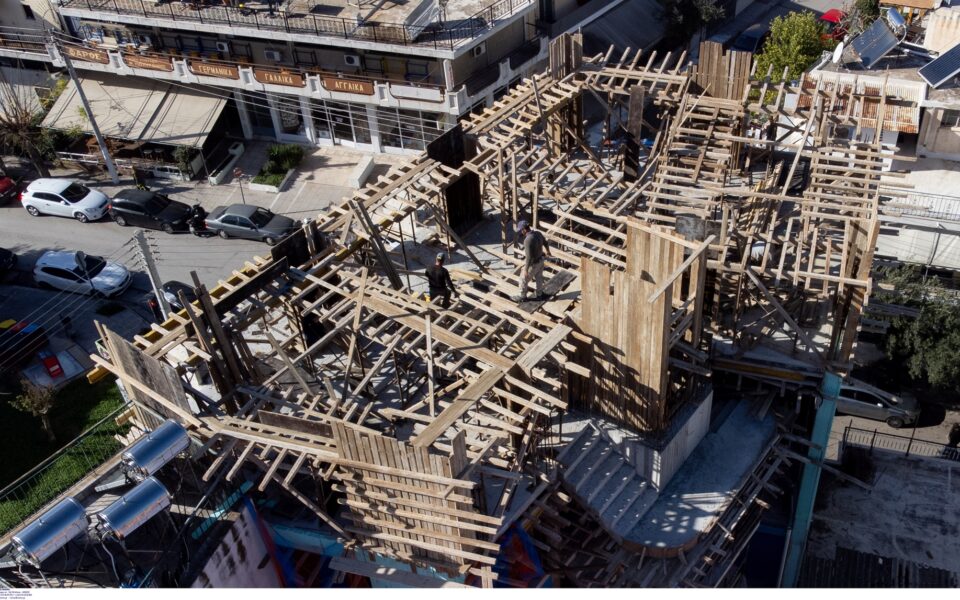Greece at rock bottom in social housing

When a law abolishing the Workers’ Housing Organization was passed in 2012 as part of a package of stringent austerity measures, Greece gave up the last tool of state intervention in the real estate market. So long as the rate of homeownership remained high, the recession continued to suppress property prices and interest rates stayed low, the housing problem could remain safely under the carpet.
That is certainly no longer the case. The cost of buying or renting a house is rising exponentially and far outpacing any growth in incomes, and demand for residential property is outpacing supply, putting a tremendous amount of pressure on the 30% of the population that doesn’t have a home to call its own. And now the country is facing the challenge of essentially rebuilding the institution of social housing from scratch to address the crisis and cover the huge gap with other European countries, which have succeeded in raising the share of social housing to as much as 20-30%, thus absorbing much of the turbulence in the real estate market.
One scheme that may prove effective is a public-private partnership whereby the state provides the property and the private sector covers the cost of construction of apartments. In exchange for the land or building, the developer would grant the state a certain number of apartments in the property that could be used as housing for vulnerable members of society. The remaining apartments would be exploited by the contractor to offset the cost of the project.
Creating a catalogue of the property that would be used to get the scheme going would be the first step. The second would be setting the criteria for how and to whom the houses would be distributed. One method could entail income criteria so that a nominal rent can also be charged where this is feasible.
One scheme that may prove effective is a public-private partnership whereby the state provides the property and the private sector covers the cost of construction
In a recent address in Parliament, Prime Minister Kyriakos Mitsotakis spoke of the “rent to own” scheme, which allows paying tenants of the state to own the house or apartment ceded to them after a certain number of years, when the amount of rent they have paid adds up.
Greece has a long way to go, however. A study by Housing Europe – the federation of cooperative and social housing representing 31 countries, of which 22 are members of the European Union – is indicative of just how far.
According to the study, the share of social housing stock in Greece is zero right now, when in top performer the Netherlands it has reached 29%, meaning that of 8 million residences, 2.3 million are characterized as social. Austria and Sweden are tied in third place with a rate of 24%, followed by France, Norway, Finland and Denmark. Greece’s poor performance is linked to the fact that a high rate of homeownership has managed to cover needs to a certain extent. This, however, is no longer enough, for the following reasons:
Firstly, homeownership has dropped to 70% so that three in 10 people now pay rent, while many privately owned homes are getting old, meaning that they cost more to maintain. The Housing Europe survey also found that Greece has one of the most aged residential buildings stocks in the EU.
Last but not least, very limited construction activity during the 2011-2021 period has resulted in a supply shortage that is only being exacerbated by the growing number of unused properties.
Austria, which has a similar population to Greece, has a much lower rate of homeownership at 49%, but has still managed a social housing ratio of 24%. From a total of 3.988 million households, one in four (or approximately 944,100 residences) are used to house vulnerable people.
France bankrolls social housing by charging a levy on salaries, which is similar to what Greece did when it still had the Workers’ Housing Organization. Its homeownership rate is at 57.5% and social housing at 17%, with more than 10 million people living in some 5.2 million subsidized properties.
Spain, for its part, has a similar system to Greece, subsidizing a portion of the rent paid by individuals who qualify for assistance to their private landlords. The system has come under fire both in Spain and Greece, with critics saying that it ultimately favors the landlords, who gradually raise their rates depending on the subsidy. This is a phenomenon that has also been seen with rent subsidies for university students studying away from home.





